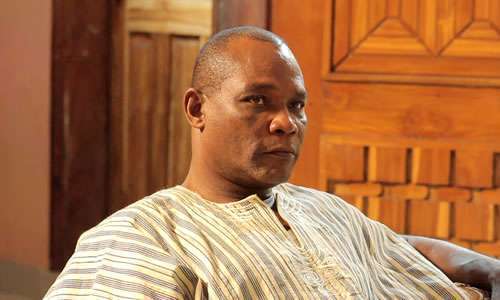Nowadays, if you’re in the mood for some local entertainment, all you have to do is hop to a cross-dressing Nigerian comedian’s Instagram page, turn on Africa Magic, or (if your soul is dark) scroll through Instablog9ja.
As a 90s baby who grew up in the 2000s, I
Cartoons were great (and judging by all the new anime on Netflix, they still are) but local television was more relatable. For long, my entire week revolved around Super Story. When I developed a taste for anarchic humour, Fuji House of Commotion took its place. Shows like those showed me multiple views of Nigerian life that I couldn’t get anywhere else.
Of course, that’s a massive world of realities. But over time, I found that my favourite shows were those with a family as the central cast. They still are. Family life in Nigeria is special, for lack of a better word and there’s no better way to see the many varieties in full splendour than on Nigerian TV.
That said, here are my 5 favourite families from Nigerian Television shows through the years.
- The Johnsons (from “The Johnsons”)
I got into this show just as I was leaving the safety of my parents’ house for the jungle that is the Lagos job market. If there’s any show that captures the mischief typical of eccentric Nigerian kids (and a cheapskate father), it’s this one. The Johnsons are a lower
Their kids are a mess too. Chinedu Ikedieze plays the first son, who’s as problematic as he’s smart. His brother, played by Olumide Oworu is a lily-
- Chief Fuji’s Family (From “Fuji House of Commotion”)
The family that struck the fear of marriage into the young hearts of Nigerians in the 2000s. If there’s one TV family I never wanted to join, it was this one. Fuji House of Commotion was a spin-off of “Checkmate”, the iconic Nigerian series by Amaka Igwe. While Checkmate is remembered for nuanced stories, The Fuji House was, at first look, pure chaos.
Chief Fuji, as the main character was called, was the centre of it all. Of his three wives and one mistress, only one – the first wife played by Toun Oni – did not have an insane capacity for troublemaking. Add half-a-dozen men in their 30s who are fine with being overgrown babies + a dozen children and you see why the title makes perfect sense. Chief Fuji’s house was a barracks, refugee camp, rehabilitation centre and cultural hub, rolled into one.
What appealed to me about the Fuji family was how it managed to reflect all the troubles you’d typically expect from such a large, multi-tribal household. But it also showed how it could work; for every new dispute, the family would manage to reach a compromise and keep moving. Such examples of resilience and multi-tribal unity are rare on Nigerian TV, even if I would rather live on crackers than join that family.
- The General’s Family (Extended Family)
You probably remember “Extended Family” as the show that brought comedian Bovi to the limelight. This 2000s show revolved around a family with a very stern
Enter his two nephews. Bovi, in particular, seemed bent on undoing all the general’s hard work with his get-rich-quick schemes and loyalty to his old lifestyle. I’ve come to realise that I may like this family in part because of my childhood. I’m partial to TV families that feature rascals and how they navigate their relationships with stern authority figures. Great comedy also helps.
I’m ashamed that I can’t remember their names, but my conscience will block my throat if I don’t include this.
- Family Circle

How do you make a list of Nigerian TV families without Family Circle? Apart from being one of the more popular series of the 1990s, the show did a great job of getting into the nitty-gritty of Nigerian family life. From disputes with extended family members to dealing with impressionabl kids, Family Circle touched everything with nuance. Sadly, there’s very little record of this show on the internet of things (or in my brain, for that matter, which explains why I can’t remember the characters’ names)
Unlike many other shows on this list, comedy wasn’t the main vehicle. Instead, we were introduced to a regular family, with regular ideals and problems, trying to live a regular life. And sometimes, being regular is special enough. There’s also the part where the family head, played by Norbert Young, was the definitive stoic father of the 1990s. Let’s just say he reminded me of someone I knew.
HONOURABLE MENTION:
- The Soundtrack (Everyday People)
This is hands down my favourite Nigerian TV show ever. I loved everyone and all the families on this show. Everyday People was perhaps one of the most-watched TV drama series of the 1990s, largely because many viewers could see themselves in the ensemble cast. The show was as close to reality as you could get with a scripted series in the 1990s; that’s how real the stories were. But what kept me coming back was the soundtrack. I still remember the words. The families weren’t that bad. But man, that soundtrack was special.
Did you enjoy this? You should sign up for our weekly pop culture newsletter, Poppin’. You’ll get to know what we’re up to before anyone else + insider gist, reviews, freebies and more. If it sounds like your deal, sign up here.




